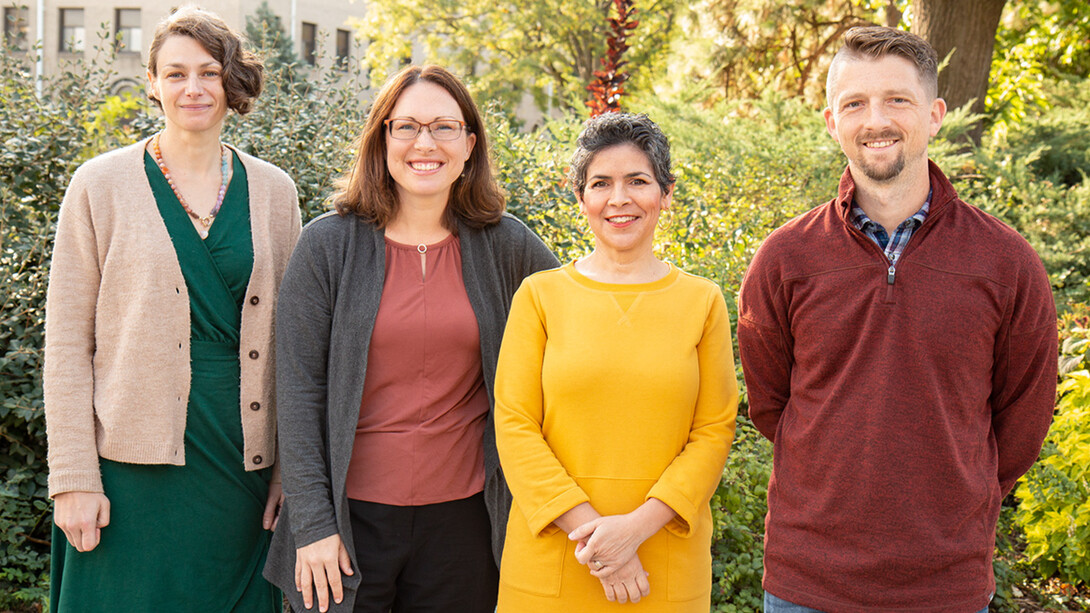
Years ago, when Sarah Zuckerman worked as a special education teacher in Washington, D.C., she saw firsthand the myriad educational and health needs her students brought with them to school.
Increasing access to more nutritious food, medical care and mental health services seemed to be constant needs she saw every day.
“I knew there was only so much I could do,” said Zuckerman, associate professor of educational administration at the University of Nebraska–Lincoln. “That ultimately was one of the things that prompted me to pursue a Ph.D.”
Now, Zuckerman and her team are using a Nebraska U Grand Challenges Catalyst Competition planning grant to lead a project that leverages collaboration among researchers, practitioners and community members to reduce educational and health inequities in Nebraska.
Along with Zuckerman, other researchers for the project include Trey Andrews, associate professor of ethnic studies and psychology; Virginia Chaidez, associate professor of nutrition and health sciences; and Megan Kelley, assistant professor of nutrition and health sciences.
The Nebraska Community Action Research for Equity and Sustainability (NE CARES) Hub will provide infrastructure and support for collaborative, interdisciplinary networks to identify problems and develop new pathways to solve them.
“For me, this project is about finally being able to put together all those pieces,” Zuckerman said. “It’s a long-deferred dream.”
The first step in reducing educational and health disparities, Zuckerman said, is to remove barriers that hinder collaboration among researchers, such as traditional research paradigms, time restraints and knowledge gaps.
Researchers will bring together people from throughout the state to discuss their experiences in inequities, challenges in their communities and ways to partner with the university. A community advisory board will be developed to gather statewide input.
“We want to empower the university to truly be a university for the people,” Chaidez said.
Kelley noted that because researchers and community partners often operate from different viewpoints, “we want to help bridge that gap to help researchers and communities identify possibilities.”
“We need to know what’s important to people in each community,” she said. “So we’re looking for things to help build better infrastructure to support everyone working together successfully.”
Kelley noted that timelines and requirements to report findings and outcomes sometimes become obstacles to the success of grant-funded, community-based projects.
“Once it’s over, it’s too easy to let those relationships dissipate,” she said. “That can be destabilizing and demoralizing for people who put in a lot of time helping you. If you’re not intentional about it, it’s easy to lose track. So we want to create this space for ongoing relationships and letting people know they have a place where they can connect.”
Kelley is eager to see the how community co-leadership emerges from the project.
“We want to make this a place where people can come together and solve problems that affect everyone,” she said. “I’m looking forward to seeing what that looks like and how we shape the project with community input and shape things that will be transformative.”
Learn more about this project in the Child Youth and Family Studies Research Network. This project aligns with the NU Grand Challenges of anti-racism and racial equity, early childhood education and development, and health equity.







